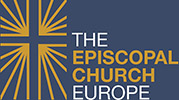Learning the Language of Worship
READ THE FULL ARTICLE AT THE ST. LOUIS POST-DISPATCH
Perhaps one of the things we are not warned about when we become Christians or join a church is that we need to learn a whole new language. I am not really talking about fancy theological language, learning technical terms like “hypostasis” or “kenosis.” Nor do I mean church lingo, like learning to tell the difference between a narthex and a sanctuary, or understanding the in-group terms of your particular denomination or congregation.
I mean that much of the “voice” we are given in church is not the voice of individual expression that we learn in school or in business. In church (at least in liturgical churches) our speech is mostly communal; we recite the same prayers, the same Creed, the same confession, and we do it in unison. Even the sermon, which might at first appear to be a place for self-expression, is really meant to be of and for the community.
Throughout the week, one of my primary tasks as priest and preacher is to listen: to listen to the people in my parish and to listen to the Word of God, so that when I go into the pulpit on Sundays I am able to mediate those voices, to bring them into harmony or at least into creative tension with one another.

